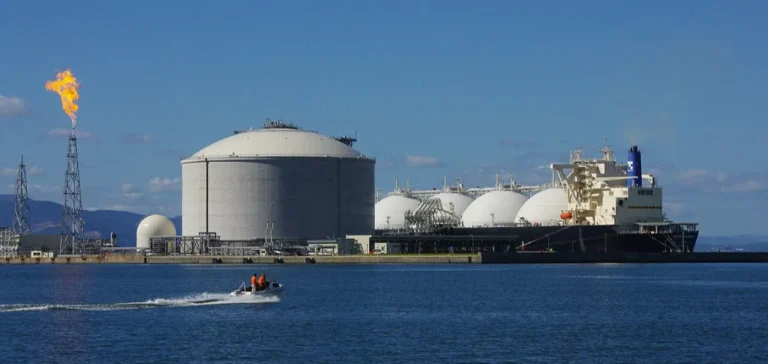The European Union (EU, European Union) is implementing a phased import ban on Russian Liquefied Natural Gas (LNG, liquefied natural gas), with exit terms for ongoing commitments. Flows to the European market amount to about 11.9 million tonnes since the start of the period, with nearly 11.7 million attributed to Yamal LNG. The concentration of volumes on a single production hub increases sensitivity to maritime constraints and the sizing of the specialized fleet. The scheduled withdrawal from the European market requires rerouting solutions to points outside the Union’s jurisdiction, with greater dependence on seasonal corridors.
Arctic logistics and diversion capacity
The Northern Sea Route (NSR) is generally closed from December to June, requiring an initial westbound routing and ship-to-ship transshipment onto conventional LNG carriers. The cost differential commonly exceeds $2/MMBtu to serve Asia outside the NSR season, versus roughly $0.5/MMBtu for a delivery to Northern Europe. Longer voyages reduce fleet productivity and lower available supply over a given period. The availability of Arc7 icebreaking units and maintenance windows determines the continuity of liftings from the liquefaction site.
European restrictions on transshipment operations have shifted activity to non-EU hubs, adding ship-days and logistical interfaces. Insurance and compliance costs rise when sanctions regimes encompass related services, increasing the total delivered cost outside the Union. The combination of longer routes and a limited specialized fleet creates a seasonal ceiling on volumes that can actually be diverted to Asia when the NSR is closed. This constraint results in lower liquefaction train utilization in cold months and prioritization of cargoes based on vessel availability.
Offtake contracts and legal framework
Yamal LNG has a nameplate capacity close to 17.4 million tonnes per year with a shareholder base including PAO Novatek, TotalEnergies SE, China National Petroleum Corporation (CNPC) and Silk Road Fund. Offtake contracts cover about 4 million tonnes per year for TotalEnergies SE, about 3 million tonnes per year for CNPC, about 2.5 million tonnes per year for Naturgy Energy Group, S.A., and about 2.4 million tonnes per year for PAO Novatek. Force majeure and “change of law” clauses structure exit, suspension or redirection when import into the Union becomes prohibited. Buyers exposed to “take-or-pay” commitments document extraordinary freight costs and regulatory constraints to frame a modification of obligations.
Counterparties assess the financial viability of a full diversion to Asia outside the NSR window, with longer distances and slower rotations. Portfolio positioning combines indexed long-term contracts and spot opportunities to smooth marginal costs. Legal departments consolidate the traceability of triggering events to align compliance with delivery schedules. Patrick Pouyanné’s communications note the need to clarify the scope of applicable rules before adjusting cargo allocation.
Global supply, benchmarks and security of supply
Global liquefaction capacity has increased by about 80 million tonnes since 2025 to exceed 510 million tonnes, with a trajectory near 630 million tonnes by 2030. This supply wave expands Europe’s substitution margin as Russian cargoes withdraw. Regasification terminals and interconnections strengthen absorption of non-Russian flows as new trains come online. China’s imports declined by about 9.5 million tonnes over a recent nine-month period, easing immediate competition on the spot market.
European gas stocks are about twelve percentage points below last year’s level at a comparable point, increasing sensitivity to cold spells and project delays. Price benchmarks, including the Japan Korea Marker (JKM) and the Title Transfer Facility (TTF), remain contained, with spread widening when the NSR is closed. Charter rates reflect the seasonal scarcity of suitable vessels and winter positioning needs. Operators reorganize transshipment toward less constrained areas and prioritize nominations to preserve portfolio flexibility.






















